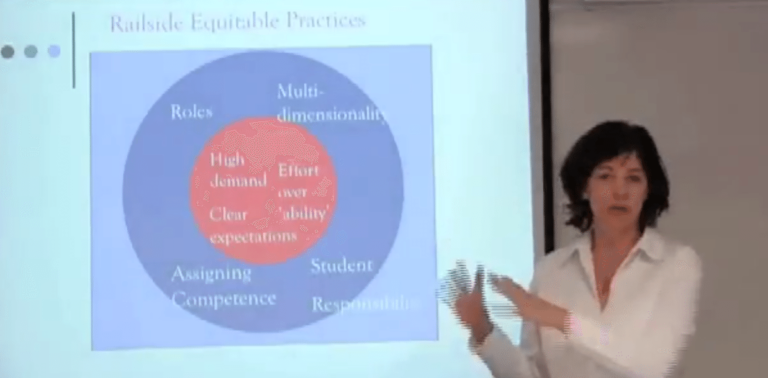In our teaching of summer school we used an approach to group work that we found to combat inequities and promote high achievement. We have found that this is an important way to promote strong and equitable participation of students in groups. The approach involves encouraging students to think in different ways. We found that all students could be involved if the groups always started by asking each member of the group how different students saw and thought about ideas. We had taught the students, through our teaching, that one of the most important parts of mathematics is the multiple different ways people see and solve it. We valued all the different ideas students shared in whole class and very soon the students started to value each others’ ideas, as we did. They told interviewers that they did not like group work in school – because some students did all the work, and the rest talked about clothes! But in our summer camp they liked group work because they all stayed on task and discussed ideas together. When teachers help students know that all ideas are valuable, that everyone can see and think about mathematics differently, and that group work should involve finding out the ways everyone sees and thinks about the mathematics, group work becomes more effective and equitable.
This page shares a video from our summer camp that gives insights into the ways students were working well in groups. The students were working on this task:
https://www.youcubed.org/tasks/squares-to-stairs/
The page also shares a number of resources detailing Complex Instruction. These include a video of me explaining the approach (from many years ago), some research articles and shorter articles.






